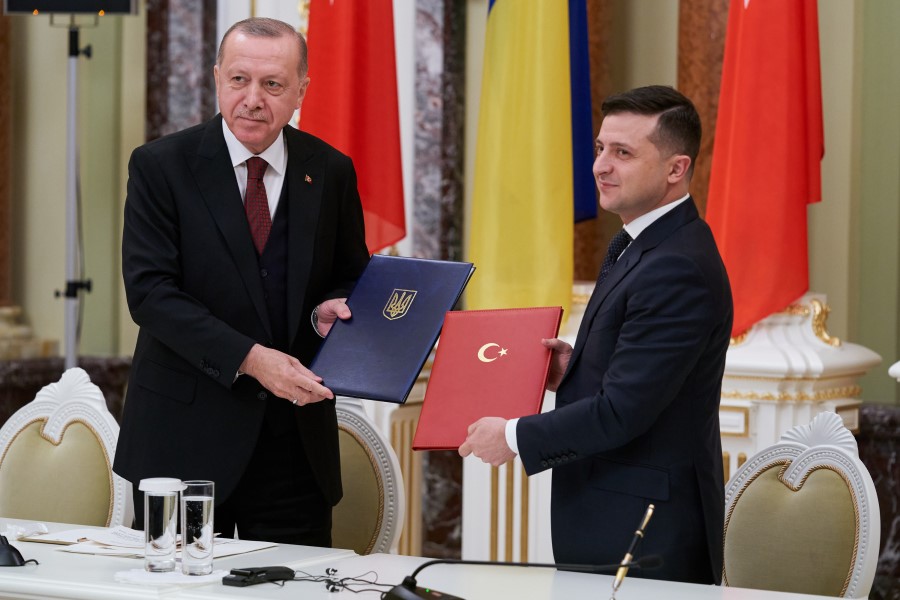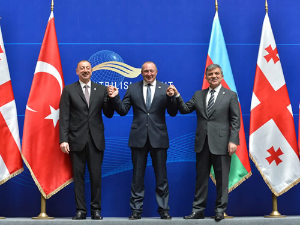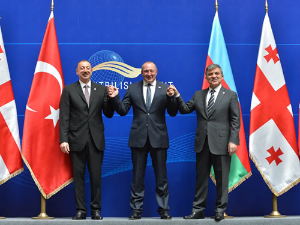Turkey Seeks to Counter Russia in the Black Sea-Caucasus Region
By Emil Avdaliani
October 5, 2020
Turkey increasingly views Ukraine, Georgia and Azerbaijan as parts of an arc that could help it balance Russia’s growing military presence in the Black Sea and in the South Caucasus. With this objective in mind, Ankara is stepping up its military cooperation not only with Baku, but also with Tbilisi and Kyiv. Turkey is signaling that it intends to play a far more active role in the Black Sea-Caucasus region in order to contain Russia’s influence. This regional strategy has wider implications as it demonstrates that Turkey, contrary to what has become a common perception in the West, is not moving closer toward Russia and that in fact Turkish and the Western geopolitical interests largely converge, with Turkey supporting Georgia’s NATO ambitions.

A Collective Security Alliance Takes Shape in the South Caucasus
By Micha’el Tanchum (vol. 7, no. 17 of the Turkey Analyst)
The defense ministers of Turkey, Azerbaijan, and Georgia conducted their first trilateral summit in mid-August, adopting specific measures to regularizetheir defense cooperation. Ankara’s participation in the nascent South Caucasus collective security alliance is motivated by Turkey’s ambition to become a leading Eurasian energy and commercial transportation hub and its need therefore to secure the Trans-Anatolian Natural Gas Pipeline and the Baku-Tblisi-Kars railway by providing a credible deterrent against increasing Russian interference in the region.

Turkey and the Georgia War: a Bungled Stability Initiative
By M. K. Kaya and Svante E. Cornell (vol. 1, no. 12 of the Turkey Analyst)
Like most other states, Turkey was hard pressed to respond to the war in Georgia. For Turkey, the war threatened its position in the Caucasus, as well as its long-term objective of becoming a hub of European energy transportation. Prime Minister Erdogan chose to moment in order to promote a form of Caucasian alliance - a well-intentioned but somewhat surreal proposal in the middle of a raging war. The crisis exposed the government's lack of attention to the Caucasus, and the need for a serious rethink of Turkey's role there
Trilateral Summit Signals Turkey's Increasing Role in South Caucasus Collective Security
By Micha’el Tanchum (vol. 7, no. 10 of the Turkey Analyst)
The first trilateral summit of the presidents of Turkey, Azerbaijan, and Georgia was held in early May, representing a historic although not widely heralded advance in strategic cooperation. Ostensibly devoted to enhancing the three nations’ economic cooperation, the summit was conducted against the backdrop of the Russia's March 2014 annexation of the Crimea and the ongoing crisis between Russia and Ukraine. The public emphasis placed on the Baku-Tblisi-Kars rail line by Turkish President Abdullah Gül, along with his Azerbaijani and Georgian counterparts, signaled that the three principals acknowledge a mutual strategic imperative for greater security cooperation.





